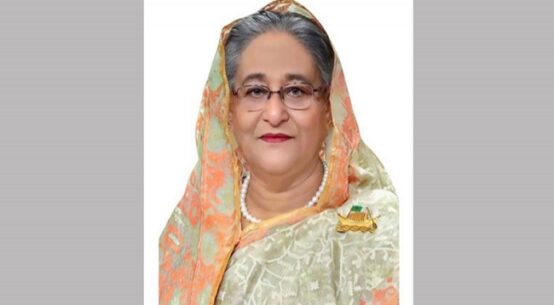
Dr Debapriya Bhattacharya, Convenor of the Citizen’s Platform and distinguished fellow at CPD, said on Sunday that a change in government does not necessarily equate to a change in governance, as there is a significant difference between the two.
“If there is a change in the government, it does not necessarily change the country’s governance system,” he said while presiding over the inaugural session of the Citizen’s Conference 2024 titled ‘People-centric Reform for Good Governance: Aspirations of Disadvantaged Communities’ in the capital.
Citizen’s Platform for SDGs Bangladesh, with support from the United Nations Development Programme (UNDP), Bangladesh and the Swiss Agency for Development and Cooperation arranged the two-day conference at BICC in the capital.
Dr Bhattacharya questioned as to why people gave so many lives and made so many sacrifices during the 2024 mass uprising if the old government system remains unchanged.
He stressed the need for strengthening the voice of the people to change the state system. “We’ll have to raise the voices of the people who are left behind boldly into the mainstream,” he added.
“We must give true recognition to the people who have collectively contributed to democracy and national development. Otherwise, we will not be able to show them respect towards their dignity and ability as citizens,” said the noted economist.
Pointing to this government who promised to establish the rule of law, he said the laws should be applied equally to all the disadvantaged communities, too.
Dr Bhattacharya urged the disadvantaged communities to raise their voices collectively to change the state system.
“Don’t be afraid, intimidated or hesitant to raise your voice on any issue. This fear and hesitation is the biggest barrier on the way to gain all our achievements. So, we should stay together and raise our voices loudly so that they (the authorities) would not be able to stay idle without paying heed to our voices,” he said.
Addressing the event as the chief guest, Chief Justice Syed Refaat Ahmed assured that the judiciary will stand beside people, stressing that strong steps have already been taken for institutional reforms at this crucial juncture.
“Everyone will find a people-oriented and people-centric judiciary by your side in welfare and work,” he said.
In recent years, the Chief Justice said that a sense of justice and the values associated with it have been eroded.
“Dishonesty instead of honesty, deprivation instead of rights, oppression instead of justice, and torture instead of shelter have been made normal matters (in the past years). But we did not want such a society and state,” he said.
“At this critical juncture of the country, the judiciary is also not free from its broken state. However, at this stage, I want to assure you in a strong voice without any hesitation that a new journey has already started with some bold steps for institutional reforms to overcome this situation,” he added.
The Chief Justice went on to say, “This historic moment of victory for the student-people movement has presented us with a golden opportunity to stand by the oppressed and oppressed. We must always be careful to make full use of this opportunity.”
Dialogue is essential not only for identifying solutions but also for rebuilding trust in the reform process, he said.
Referring to the promotion deprivation the current chief justice faced five times during the previous government, Dr Bhattacharya said a kleptocracy was developed in the country in the last decade as there was no recognition of talents and potentials without loyalty (towards the government).
“The biggest harm we suffered at that time was that there was no recognition of talent and potential without loyalty,” he said, adding that though Syed Refaat Ahmed was the most talented justice, he was deprived of promotion five times at that time.
Lamiya Morshed, Principal Coordinator for SDG Affairs at the Chief Adviser’s Office, said the Bangladesh’s Voluntary National Review Report, (a progress report on SDGs implemented) would be inclusive and representative this time.
He said they are working on preparing a robust, accurate and inclusive report, which will be submitted to the United Nations next year to depict the picture of the country’s progress and also challenges over the implementation of SDGs.
“The main spirit of SDGs is to keep none left behind. We want to move forward with this spirit. We all will have to be vocal against any unjust,” said the principal coordinator.
She stressed the reform process must build the momentum by mobilizing public support, engaging communities, fostering partnership to implement the reforms effectively. “We must stay united (for reforms),” she added.
Stefan Liller, Resident Representative of UNDP Bangladesh said Bangladesh is in a critical junction of its history. “This is a moment that requires reflection of dialogues with all in action,” he said.
“The government must be transparent and free from corruption,” he said, adding that it needs to implement a robust anti-corruption mechanism, strengthening enforcement and fostering a culture of integrity in every level of governance.
He urged the policymakers to seize this moment to create a governance system that reflects the aspirations of every citizen.
Stefan Liller also called upon the young people to stay engaged and work together so that the governance system would be inclusive, transparent and accountable with reflection of their ambitions and aspirations.
Corinne Henchoz Pignani, Charge d’Affaires at the Embassy of Switzerland in Bangladesh, put emphasis on inclusion of all voices in transformation process, continuation of dialogues with disadvantaged communities, investment in education and innovation and ensuring the governance reform agenda is centered on the needs and aspirations of the people.


